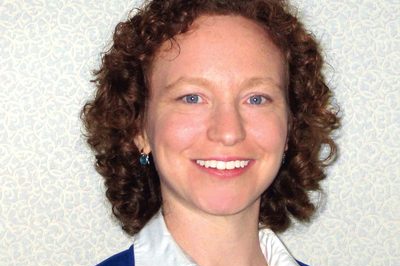If a review of the military’s “Don’t Ask, Don’t Tell” policy includes speaking with gay and lesbian servicemembers (or ex-servicemembers), as discussed in the Feb. 2 Senate Armed Services Committee hearing, it would be wise to make sure families with children are among them.
Two years ago, I had the honor of interviewing an active-duty lesbian servicemember and her partner about the difficulty of raising children while remaining closeted (“Bay Windows,” Feb. 10, 2008). They spoke of the stress on their family from having to live apart from the other families on base, for fear that one of their young children would inadvertently let slip the fact that he has two moms. They spoke of missing the base holiday party, complete with Santa, and having their children forego the friendship and support of other children whose parents were deployed to war zones. There were economic hardships, too — a lack of medical benefits for the non-military partner, for example — but they paled next to the emotional ones.
Since I first posted the interview on my blog, several other lesbian military moms and their partners have left comments telling similar stories. One wrote:
“For now, we just try to offer some explanation to the kids of why gays aren’t ‘good enough’ to serve in the open … when we’re good enough to make sacrifices in our personal lives in excess of the heterosexuals we serve beside every day. The saddest part isn’t the sacrifices I or my family make in the service of our country, it is the misinterpretation of the Constitution. I’m very proud to be a defender of the Constitution … the same document that in a normal society would, under Article 14, allow me to simply be the person God made me to be.”
Another said: “I guess we’re one of the lucky ones. My partner was stationed in [name omitted] with the Navy, and we were always included, with our daughter, in functions. Some events were held by the squadron and some were just pool parties and family get-togethers at coworkers’ homes.”
One question I have heard posed to lesbian military parents is, “Why don’t you just quit, if it is so hard on your kids?” The answers vary: The servicemember I interviewed spoke passionately about knowing she wanted to be a soldier almost as long as she had known she was a lesbian. To not be a soldier would be the same as telling her children not to pursue their dreams. For others, it is economic necessity.
Now, as the repeal of the military ban seems closer to reality, many may simply be hoping to hang in long enough to see it happen.
Yes, integrating same-sex-headed families will take some work. On-base schools, for example, should brief teachers on all of the usual issues teachers face with children of lesbian and gay parents in the classroom — being inclusive, especially around Mother’s Day and Father’s Day; creating forms with “Parent” and “Parent” instead of “Mother” and “Father:” keeping an eye out for those who would tease others about their parents.
That is not, however, a reason to hold up implementing the repeal. Military lesbian and gay parents, like civilian ones, will meet with teachers as necessary and explain their concerns.
Furthermore, it is not beyond reason to see that in a few years, on-base schools could even become exemplars for the smooth integration of children from all different types of families. The children will bond over the shared experience of military family life, frequent moves and fears of parental deployment, with the gender of the parents mattering much less.
For the moment, however, that is just a dream. Right now, children of lesbian and gay servicemembers must lie or learn not to talk about their parents for fear of retribution by the government against their families.
One might argue that because gay and lesbian servicemembers are a minority (though their exact numbers are unknown), the number of such servicemembers with children must be even smaller. If a few children grow up lying about their families, all in the name of maintaining an ostensibly more effective military, is it such a big deal?
Well, consider that the elite units of our military boast they “never leave a man behind.” Consider that there is a huge federal educational program (first developed under President Bush) devoted to making sure no child is left behind. We are, however, leaving the children of gay and lesbian servicemembers behind. We deny them the support of other military families and family services, which can affect them emotionally and academically. We put unfair financial burdens on their families. We require them to lie to protect their families’ livelihoods. That runs counter to the core values of our military and our educational system — and ultimately, our country. Allowing even some children to be in this situation is a disgrace.
Chairman of the Joint Chiefs of Staff Adm. Michael Mullen wrote on his blog the day after the Senate hearing: “What our young men and women and their families want, what they deserve, is that we listen to them and act in their best interests.”
That means the best interests of all of them.
Dana Rudolph is the founder and publisher of Mombian (www.mombian.com), a blog and resource directory for LGBT parents.
